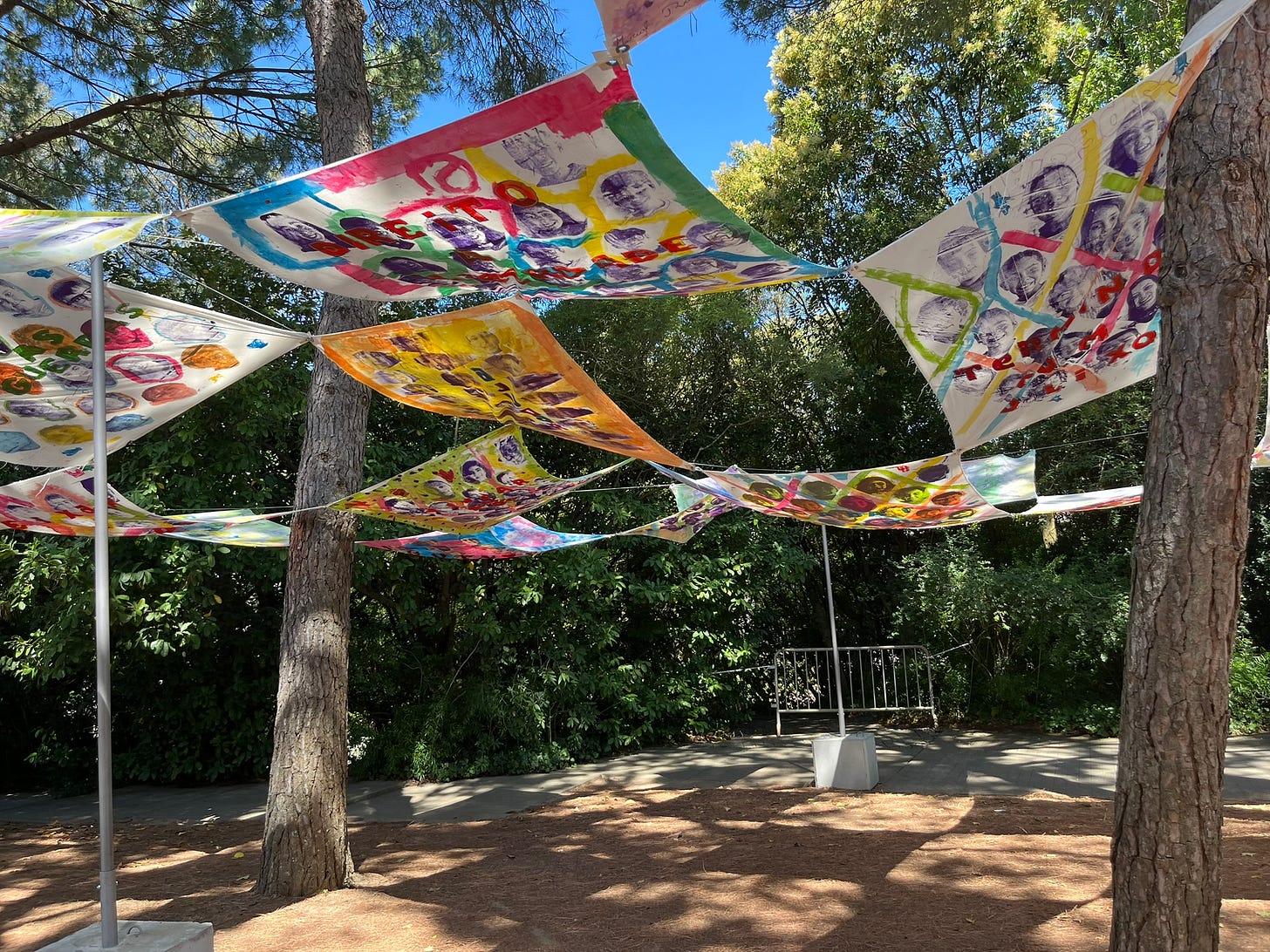Sunday, 9/15/2024- Zoom Conversation (paid subscribers only)
And a very short addendum about disrupting the status quo of museums
Dear Paid Subscribers - I’m so looking forward to being in conversation with those of you who have been so generous to support my writing with a paid subscription. It’s so encouraging to be paid for this creative work. I sent all 15 of you (paid subscribers) an email with the Zoom link, but if you’ve not received that email, please reach out to me (bnaidus@uw.edu). I invite you to bring whatever questions you may have about the content of what I’ve been writing, and I’ll be curious to hear what you think about collaboration and what you might want to contribute to the content of the book. I’ll be recording our conversation and taking notes. I’m also thinking about prompts that might get your imaginations inspired.
In regards to my last post critiquing the Banksy museum, I found this article this morning about ways to really challenge the status quo of museums: https://artreview.com/the-disordered-museum-francoise-verges-interview-sarah-jilani/
“in A Programme of Absolute Disorder: Decolonizing the Museum (2024), Vergès turns her radical line of questioning towards the museum. She highlights the ways in which the Western museum attempts to obscure or erase from public view its own founding pillars of extermination, wealth extraction and privatisation. For Vergès, this kind of museum cannot be decolonised. It must be disordered – pulled apart in every sense, from its management hierarchy to the myths it tells itself about neutral custodianship. Only then, she argues, can we foster ways of understanding the human and nonhuman world that are no longer premised upon domination.”
I absolutely love this thorough examination and suggested “glitching” of the systems that undergird museums. I hope that Francoise Verges’ ideas get traction and make an impact with younger movers and shakers who want to shift the way we view history and culture.
Glitching (one of Bayo Akomolafe’s favorite words) can happen unexpectedly. I was walking through the lovely gardens outside of the Gulbenkian Musesum in Lisbon in early July and found this participatory installation by the artist, Fidel Évora, from Cape Verde. After looking at the precious plunder accumulated from so many cultures in the museum itself, it was a relief to see the liveliness of this cultural intervention.
My next post will address some of the political polarization arising in our communities in the US right now. I’m raising some difficult questions. Stay tuned.






